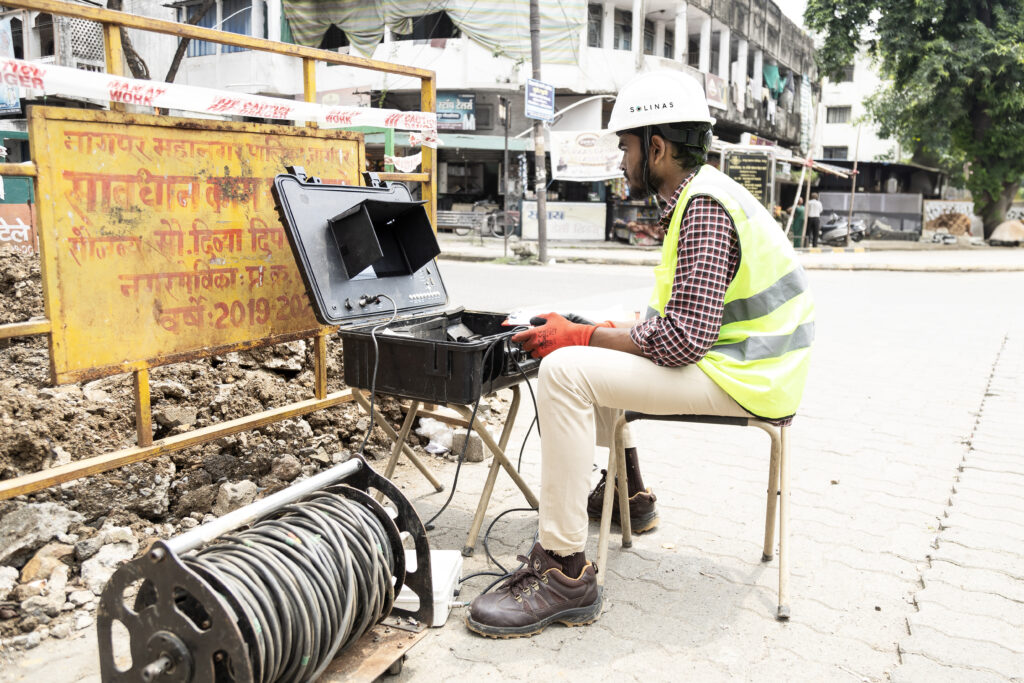Solinas, for instance, has developed an AI-powered platform, Swasth AI; an ‘Endobot’ series of robotic pipeline crawlers for sewerage line inspections; a robotic intervention called Homosep to end manual scavenging; and a work-in-progress solution, XcavX, to clear sludge from sewer lines and sewage treatment plants.
For Co-founder Divanshu Kumar, the inspiration for the venture came from his experience of growing up in Gaya (Bihar), where packaged drinking water remains an expensive alternative lifeline, like in many other parts of the country.
“On average, a tier-1 city supplies 1,150 MLD (megalitres per day) of water, of which 600 MLD is lost. That’s equal to ₹163 crore per day. Illegal connections, contamination, leaks and other defects in the pipeline networks are responsible for the loss. Conventional methods to detect leakage usually involve trenching and manual search,” he explains.
A municipality usually ends up digging 7-8 pits/trenches to pinpoint a leak or contamination site manually.
Akvo approaches the problem of water scarcity by decentralising supply and moving away from unsustainable sources like groundwater, tanker supply and largescale desalination. CEO and Founder Navkaran Singh Bagga says the idea is to create water at the point of consumption, without additional infrastructure, logistics or depleting natural reserves.
“My decision (for launching the company) was not from an environmentalist’s lens, but a strictly entrepreneurial mindset to identify a critical problem, build a scalable technology around it and deliver value. Water-tech checked all those boxes,” he says.
Source:

